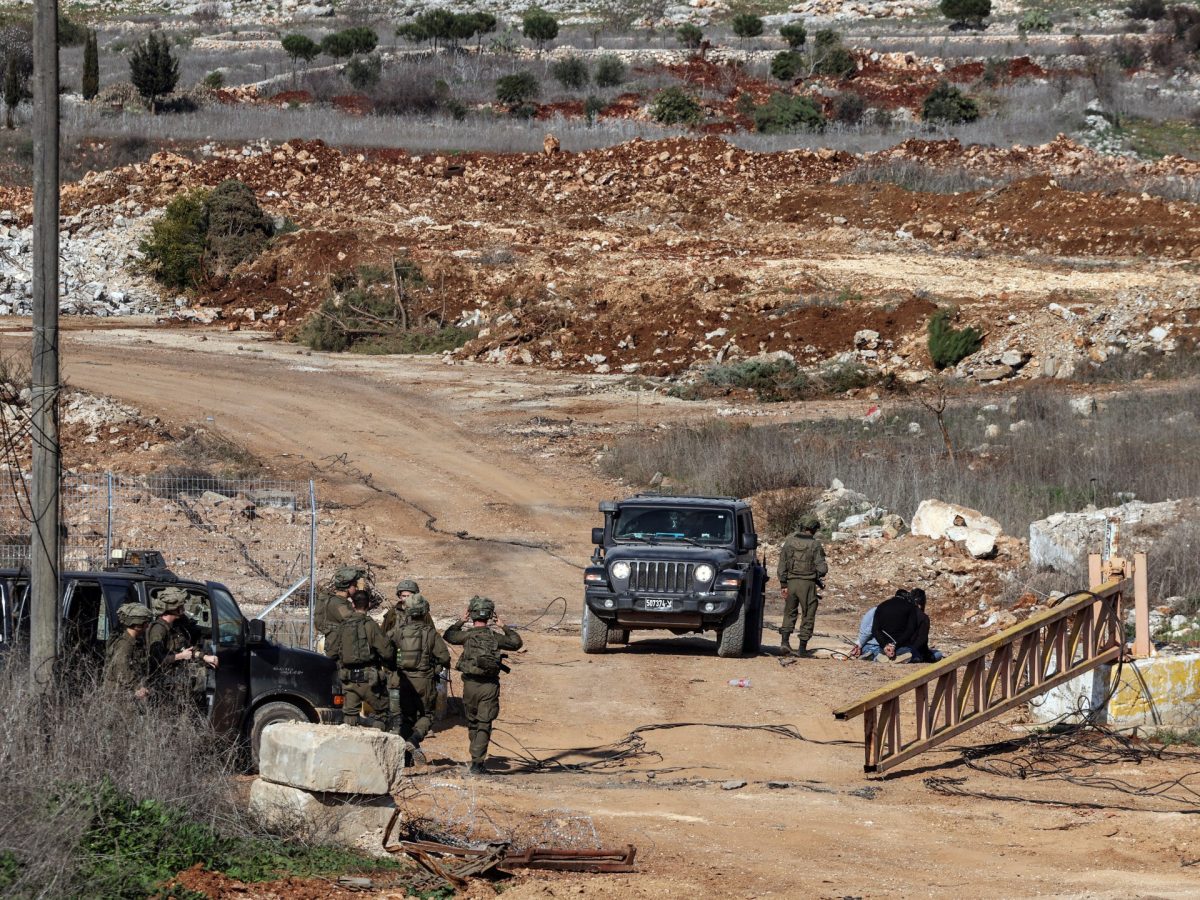Israeli military spokesperson Nadav Shoshani said on Monday that the five locations in Lebanon provide vantage points or are located across from communities in northern Israel.
“We need to remain at those points at the moment to defend Israeli citizens, to make sure this process is complete and eventually hand it over to the Lebanese armed forces,” Shoshani told reporters.
He added the “temporary measure” was approved by the United States-led body monitoring the ceasefire, which came into effect in late November.
Lebanon had expressed concern earlier on Monday that Israel would not move all of its forces out of the country by Tuesday’s agreed deadline.
“We are afraid that a complete withdrawal will not be achieved tomorrow,” Aoun said in a statement.
“The Lebanese response will be through a unified, comprehensive national position,” the Lebanese president added.
Lebanon’s concerns over the Israeli army’s plans illustrate the fragility of the ceasefire between Israel and the Lebanese group Hezbollah.
They also come after several reports of attacks across Lebanon, a common tactic of the Israeli military on the eve of a cessation of hostilities.
Israel and Hezbollah agreed to the ceasefire to bring an end to months of all-out war, during which Israel launched ground operations against Lebanon and assassinated a wave of top Hezbollah figures, including chief Seyyed Hassan Nasrallah.
Under the deal, the Israeli army was to withdraw from southern Lebanon over a 60-day period while Lebanon’s military deployed in the Hezbollah heartland alongside United Nations peacekeepers.
The 60-day deadline, which fell in late January, was later extended to Tuesday.
Hezbollah was to pull back north of the Litani River, about 30km (20 miles) from the Lebanon-Israel border, and dismantle any of its remaining military infrastructure in the south.
However, last week, Israel accused the Lebanese armed group of failing to abide by the deal and claimed it did not plan to fully withdraw in the short term.
Speaker of Lebanon’s Parliament Nabih Berri, a Hezbollah ally, stated he had received word from Washington that Israel would remain in those five locations, a plan Lebanon rejected.
